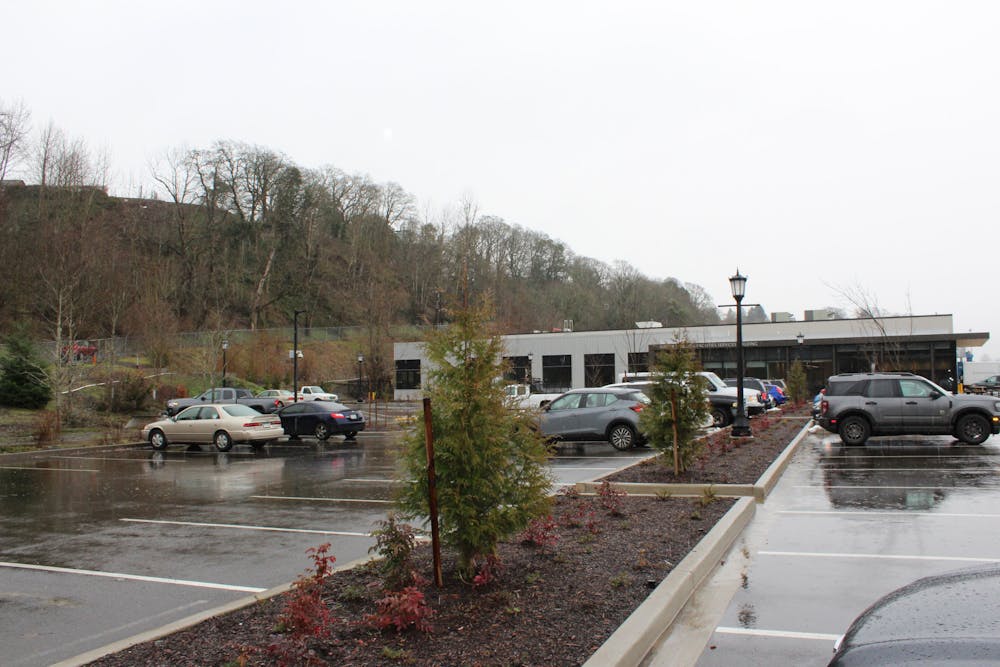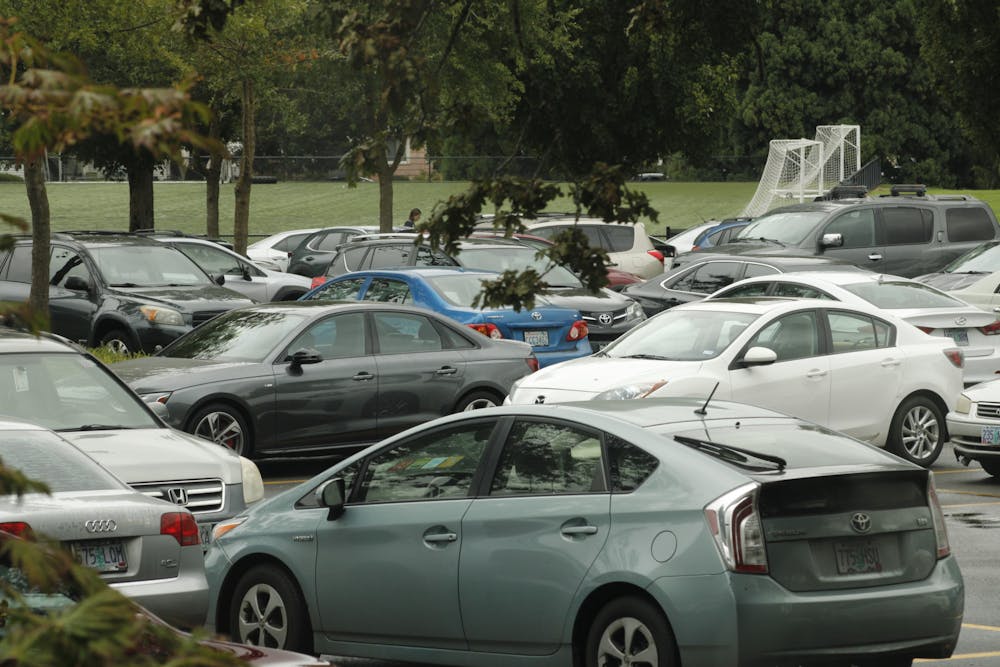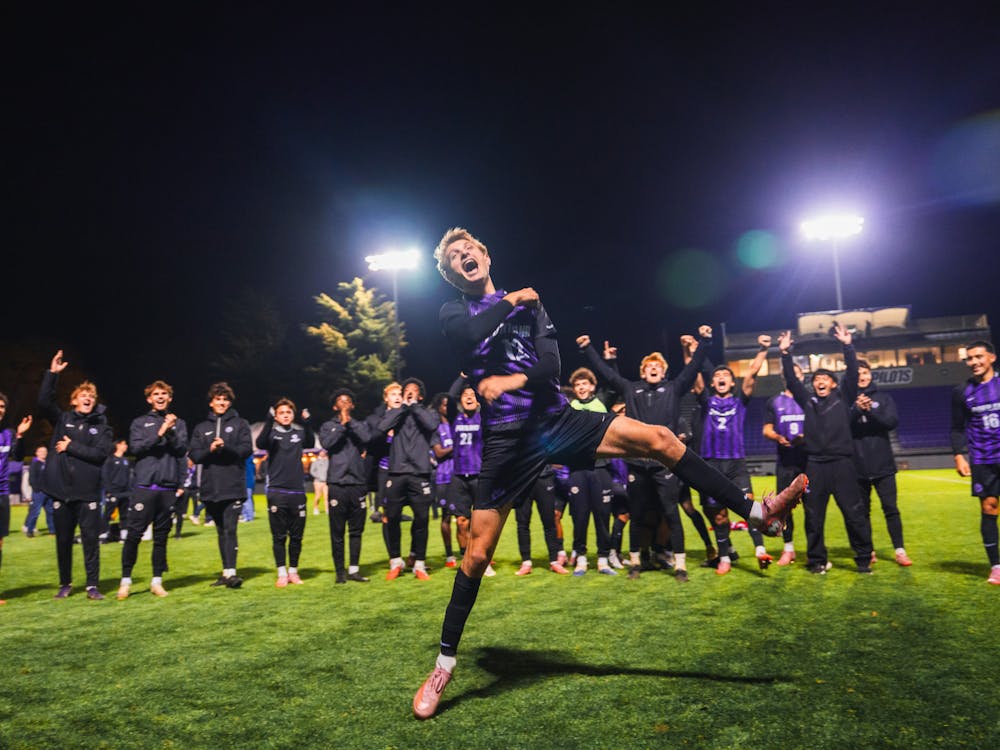Lexi Bacon, a second-year nursing student, thought she had everything set for her sophomore year at UP. She shipped her car from California to Portland on Aug. 6, expecting to use it throughout the school year.
But, just before the semester began, a text from friends brought unexpected news: The University had changed its parking policy, and sophomores could no longer automatically receive parking permits.
“[My friends] were like, ‘So I know you talked about bringing your car, but like, what are you going to do with your car?’” Bacon said. “And I was like, ‘What do you mean what am I going to do with my car? I’m going to get a parking pass like everybody else.’”
The new policy, introduced this year, requires second-year students to apply for exemptions to park on campus. This change is part of UP’s latest efforts to manage limited parking spaces while complying with city regulations aiming to reduce single-occupancy vehicles.
While the policy was finalized mid-summer, for students like Bacon, the policy shift was unexpected due to a lack of clear communication from Campus Safety and Residence Life. Many students were unaware of the changes until they arrived on campus and inquired about purchasing a parking pass.
According to Micheal McNerney, the director of campus safety and emergency management, the new policy now requires second years to demonstrate a hardship to qualify for an on-campus parking permit.
“We use the language hardship,” McNerney said. “If a student can articulate a challenge and they can demonstrate that they've considered alternatives to having a personal vehicle and that those are not feasible for a variety of reasons — whatever those reasons might be — then that tends to be the way that we authorize those exemptions.”
Exemption forms are available online, and those who park without authorization have the potential to be cited $50, doubling the cost of regular citations.
"We're looking for a learning opportunity rather than to be punitive,” McNerney said.
Portland’s expansion of bike lanes along Willamette Blvd. further reduces off-campus parking options, leaving drivers — both on and off campus — struggling to find parking.
On-campus parking and sustainability efforts
Parking availability at UP is also under constraints due to the city’s carbon reduction goals, which aim to limit the number of single-occupant vehicle trips to campus to under 30% by 2035.
According to Jennie Cambier, the associate vice president for campus planning and construction, UP is nearing that target, with 38% of drivers still driving alone.
“They [the City of Portland] basically want a very small number of people actually driving themselves alone to campus,” Cambier said. “They want 70% of everyone else to be walking, biking or using public transportation.”
To support these efforts, UP has designated 83 carpool spots on campus, restricted to vehicles with carpool (C) parking permits from 7-9 a.m. After those hours, the spaces are available to all permit holders.
According to Cambier, the University is also considering reinstating a shuttle service from River Campus to the main campus to fully utilize parking, though no official plans have been made yet.
Off-campus parking pressures
Adding to on-campus parking challenges, off-campus parking has become more scarce due to the city’s project on Willamette Blvd., which reduces on-street parking spaces to expand bike lanes.
Next summer, more parking along Willamette will be removed as the bike lanes extend further south, leaving students and staff with fewer options outside campus.

Despite these obstacles, McNerney notes that parking spaces are still available at River Campus and other “less convenient" locations.
“There's a lot of chatter about how we don't have enough parking, and ‘I can't find parking when I come at certain times a day,’” McNerney said. “While that may be true for the space you want to park, I think it's important to note that there is often less convenient, but still available parking on the campus, and so, I really encourage students to become familiar with some of those less utilized areas.”
Looking ahead
The University is working with Kittelson & Associates, Inc., a transportation consulting and engineering group, to analyze current and future parking demands. According to a report from the group to the city in Oct. 2023, parking usage peaks between 10 a.m. and 11 a.m., with street spots on campus reaching 90% capacity.
According to Kittelson & Associates, Inc., campus parking utilization sits between 60-70%, indicating that while there are challenges during peak hours, space is still available.

The University remains limited in its ability to expand parking. City regulations require approval for any additional parking exceeding four parking spaces or 20,000 square feet, and such approval is unlikely unless UP can prove it’s fully utilizing its current lots, according to Cambier.
“100% [utilization] all the time would mean we definitely have a parking problem and we need to build more parking,” Cambier said. “But when the city sees numbers like this, they're gonna say, ‘It looks like you have enough parking, and if you try to permit building a parking garage, say, we're gonna have some questions about that.’”
As of now, UP is focused on advocating alternative transportation options, working with TriMet for more frequent bus service, and offering resources like the on-campus bike mechanic in Beauchamp to make biking a more accessible option.
Kaylee Monahan is a news/sports reporter at The Beacon. She can be reached at monahan26@up.edu.
Julianna Pedone contributed to this story. She can be reached at pedone25@up.edu.








